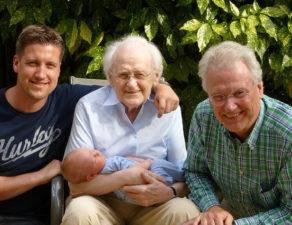
Leaving assets to your children gives rise to many considerations. For instance, if the child is a minor, you do not want assets passing to that minor child outright. Even if the child is not a minor, there is a widely accepted sentiment that most children should not take total possession and control of an inheritance until they are somewhat more mature in age. To address these issues, inheritances will often be held in trust until the child reaches a certain age.
A typical trust under these circumstances provides that the child’s inheritance will be maintained in trust and distributed in staggered amounts, for instance, one-half upon the child attaining twenty-five years of age and the balance at thirty. You can tailor these distributions to your liking. During the term of the trust, the trustee can distribute the assets of the trust to or for the benefit of the child for any reason, in the discretion of the trustee. Often a close family member will serve as trustee of the trust.
The trust described above is very common but does not address other concerns that are becoming more and more prevalent in today’s society such as divorce, debt, and lawsuits. Since the assets of the trust must be distributed to the beneficiary upon attaining certain ages, the assets will become exposed to the beneficiary’s creditors regardless of the child’s maturity once the assets are distributed. Thus, there is a risk that your estate may be lost to your child’s divorcing spouse or other creditors. The solution and more thorough planning technique is to create a trust for the lifetime of your child where the child has a certain degree of control over the trust. This is commonly referred to as beneficiary-controlled trust.
A beneficiary-controlled trust allows you to “control from the grave”. In a beneficiary-controlled trust, the beneficiary is also the trustee of the trust. The trustee/beneficiary can have the power to distribute the assets of the trust to herself for her health, maintenance, education or support. There is a co-trustee who is independent, with the power to access the trust for your child’s benefit above and beyond your child’s health, maintenance, education, and support. Your child will have the power to remove and replace the co-trustee if they do not get along. Upon the child’s death, the trust can continue for your grandchildren under similar terms and conditions thereby continuing the benefits.
By maintaining the assets in trust under the beneficiary-controlled trust scenario, you provide your child with a certain degree of access and control over their inheritance while also sheltering the assets from your child’s creditors. In a typical marriage, a child will receive an inheritance and co-mingle those assets with their marital assets. Once that happens, the assets are subject to division in a divorce proceeding. If the assets are held in a beneficiary-controlled trust, this is avoided. Moreover, the assets of the beneficiary-controlled trust cannot be reached by other creditor types.
Please contact me at smd@mfd-law.com to schedule a consultation to review your estate plan and discuss this topic.










